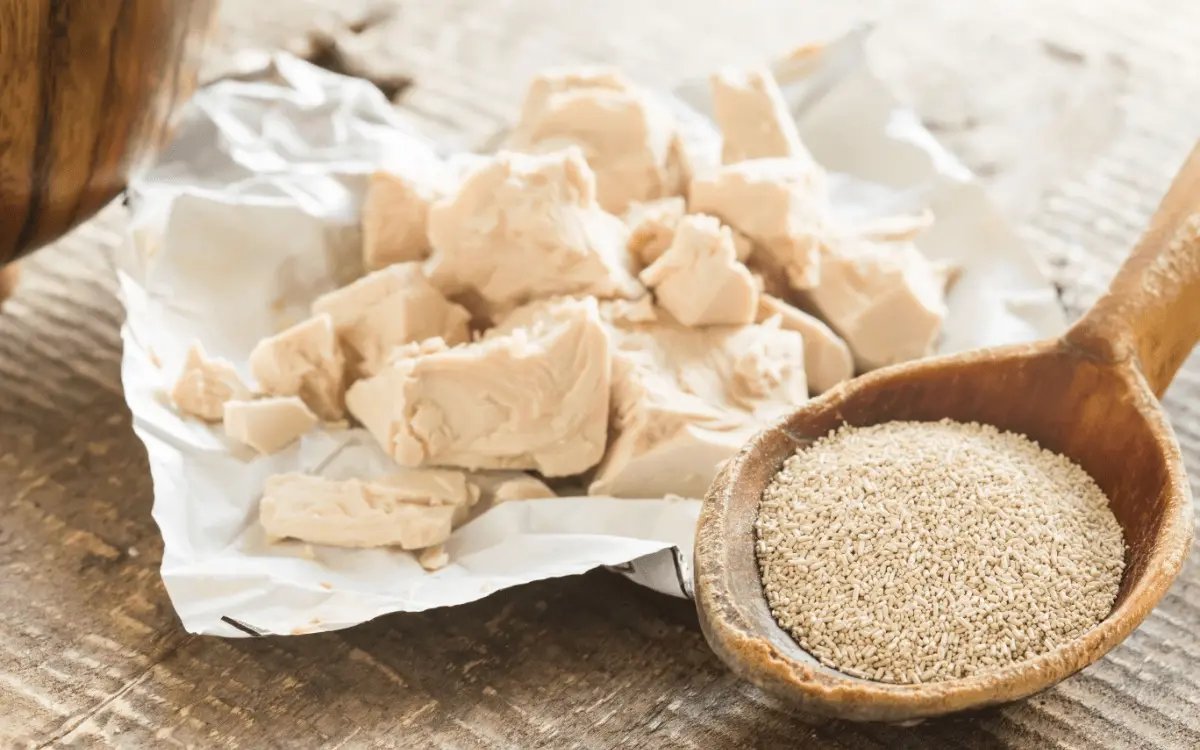new to the gluten free journey?
new to the gluten free journey?

Starting your gluten free journey can be overwhelming and confusing. There are so many different foods to evaluate and labels to decode, and it can be hard to differentiate what you are told contains gluten vs. what is actually gluten free.
Many people confuse yeast extract with baker’s yeast, brewer’s yeast, and nutritional yeast. This article will discuss the important differences as well as answer the question – Is Yeast Extract Gluten Free?
Gluten is a protein found in grains. While many resources highlight only wheat, barley, and rye as sources of gluten, the reality is that all grains contain gluten.
People who are gluten intolerant or have Celiac Disease have an autoimmune reaction that is triggered when gluten is ingested. This causes Inflammation in intestinal tracts and other parts of their bodies with other harmful side effects.
Yeast is a common household item used in baking. It is a single-cell organism that is classified as a fungus. When yeast is fermented it can convert sugars and starches into carbon dioxide and alcohol. This is what has made it such a popular baking and brewing product. In baking, as things like bread heat up in the oven, the yeast ferments and releases carbon dioxide into the dough, making it rise. Similarly, in brewing yeast is added to turn sugars into alcohol, this process is used most in making mead.
There are a number of different yeast products that perform a number of processes. However, is yeast gluten free? The basic answer is…kind of? While yeast is meant to be gluten free, it is often mixed with ingredients that are not safe for those with a gluten intolerance. Let’s explore some of the different kinds of yeast to help discover which yeast might be safe to eat if you’re gluten intolerant.
Yeast extract is a byproduct of the brewing process, resulting from spent brewers grain. It also appears on labels as autolyzed yeast extract. Yeast extract is often used as a food flavoring agent or additive, It is also found in cosmetic supplements.
In a study published in the research journal, Foods, researchers analyzed the gluten content of brewers yeast and yeast extract, and found it to contain gluten. Additionally, an independent researcher and dietician, Tricia Thompson, performed an analysis of gluten in common yeast extracts. Her findings are summarized here, but the bottom line is that she found unsafe levels of gluten in several yeast extract products.
Bottom line – Because yeast extract is a by-product of a process that involves gluten, wheat, barley, and other common grains found in beer and brewery products, it is not recommended for those following a gluten free diet for health purposes.
So, is yeast extract gluten free? No, it is not. We recommend that you read labels carefully and avoid yeast extract if you have a gluten intolerance or Celiac Disease.
New to the Gluten Free journey? Take our Sensitivity Test
Stay up-to-date with the latest articles, tips, recipes and more.

*These statements have not been evaluated by the Food and Drug Administration. This product is not intended to diagnose, treat, cure or prevent any disease.
If you are pregnant, nursing, taking medication, or have a medical condition, consult your physician before using this product.
The entire contents of this website are based upon the opinions of Peter Osborne, unless otherwise noted. Individual articles are based upon the opinions of the respective author, who retains copyright as marked. The information on this website is not intended to replace a one-on-one relationship with a qualified health care professional and is not intended as medical advice. It is intended as a sharing of knowledge and information from the research and experience of Peter Osborne and his community. Peter Osborne encourages you to make your own health care decisions based upon your research and in partnership with a qualified health care professional.